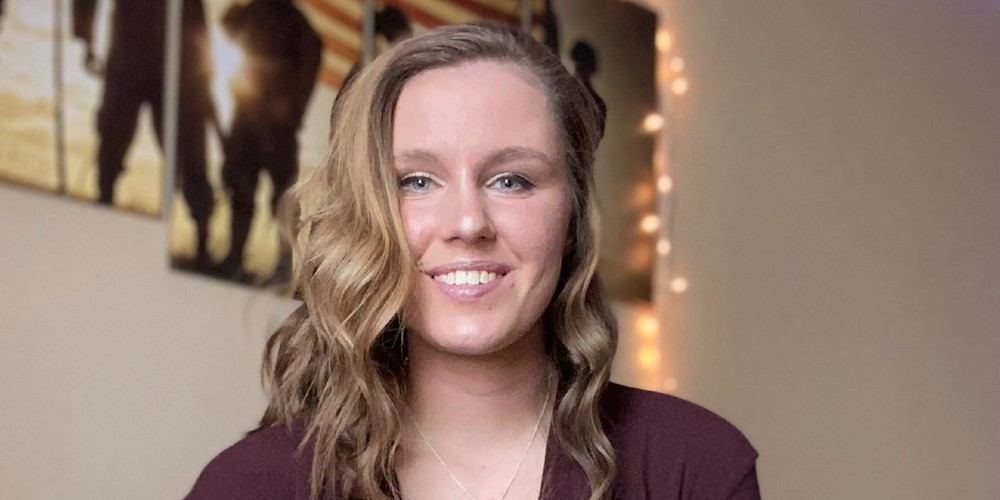A 22-year-old Army National Guard member has suffered an array of health issues—including two heart attacks that pushed her to the brink of death—after two doses of the Moderna COVID vaccine.
Karolina Stancik once considered herself “very healthy,” playing multiple sports from adolescence through early adulthood. At 21 years old, she chose to serve the country by joining the U.S. Army in February 2021.
“We were told that it was going to be required and we should take it before we shipped out to basic training,” she said, which was before Secretary of Defense Lloyd Austin’s August 2021 announcement of the military vaccine mandate.
This messaging, according to Stancik, made the new recruits feel like, “You’re a bad person if you don’t get the vaccine, and you don’t care about the people around you.”
“As a young, new soldier, I and a lot of others around me, did what we were told,” Stancik said.
“We were too new to know all the rules and possible loopholes,” she added. ” I pretty much blindly took it because I didn’t know you could get exemptions” for medical or religious reasons.
Stancik ended up taking the Moderna vaccine in March and April 2021; since then, “life has been an uphill battle,” she said.
First, came the breathing issues.
“I was dealing with what doctors considered asthma at the time without a diagnosis, and I had never had any lung issues at any other point in my life,” she said.
Stancik also experienced what felt like a cold or sinus infection, pressure in her head, and dizziness.
Next came a fever, as well as numbness and tingling throughout her body. But she was told by a doctor that these symptoms were normal.
At one point, her command threatened to accuse her of insubordination for not participating in physical training. However, “a doctor’s order kept me from getting in trouble with my command,” she said. The Epoch Times viewed that order, as well as other medical documentation and Stancik’s Army permanent medical profile to corroborate her claims.
Problems with visual processing and what she described as neurological issues began in October 2021. These included numbness, tingling, stabbing pains throughout her body, loss of motor function, tremors, and more.
“It all progressively got worse, and never stopped,” Stancik said.
In October 2021, she found herself in an emergency room, following her first heart attack. Things only escalated after that as she started experiencing nausea, a high heart rate, stabbing pains, and blacking out, she said. In February 2022, she had a second heart attack.
In addition to these two heart attacks, Stancik said she’s been diagnosed with severe asthma and postural orthostatic tachycardia syndrome (POTS), a blood circulation disorder that causes a higher heart rate when transitioning from sitting or lying down to standing up.
In November 2022, her doctor told her she had “signs of a mini-stroke,” she said. After that incident and the onset of impaired eyesight, she was finally advised to see a neurologist. She’s now waiting for the results of tests for neuropathy, dysautonomia, lupus, multiple sclerosis, and others.
Stancik’s neurological problems have continued this year.
“As I wait for results about my neurological issues, I’m also experiencing increasing problems with my visual processing,” she said.
With health issues on the rise, she said, “Half together is put together for me right now.”
Medical Care Costs on the Rise
Meanwhile, TRICARE, the military medical system, is no longer paying her medical bills because the Army has removed her from active duty.
“The bills are stacking up,” she said. “I’m getting billed for everything that follows my active-duty service.”
In February 2022, Stancik was recommended for medical retirement and is awaiting a determination.
There have been recurring costs of bloodwork analysis, doctor’s visits, and cardiology care, for example. She’s also being billed for neurology appointments.
“For cardiology, I was getting billed $225 for every single visit, so I had to stop going so often.”
Online donations help to offset some of her medical care costs.
“The experience has left me feeling pissed off, sad, and discouraged at times, but I know I’m not the only who took the vaccine and who is suffering,” she said. “My duty now, while I have the capacity to do it, is to speak out for those who need to be spoken for.
“Many soldiers were injured by the vaccine, and the Army just doesn’t care,” she said. “And because of this, I’m suppressing my anger to turn it into something positive to be a voice for them.”
Stancik says that her views don’t reflect those of the Department of Defense or the Department of the Army. Moderna and Army officials didn’t respond by press time to a request by The Epoch Times for comment.
Article cross-posted from our premium news partners at The Epoch Times.





hang the bastards who mandated this $heet
There aren’t enough lamposts around the DC Beltway.
God Bless you young lady. I pray for your complete healing. I sure hope you are able to sue for being forced to take this death shot. I will gladly donate to you to help with medical expenses. As long as it’s GiveSendGo. I won’t do the other one.
The good old Jim Jones Ouchie Fauci poison jab. Millions maybe billions will die early but it will be covered up in the corrupt media.
Thanks for the clot shot Trump.